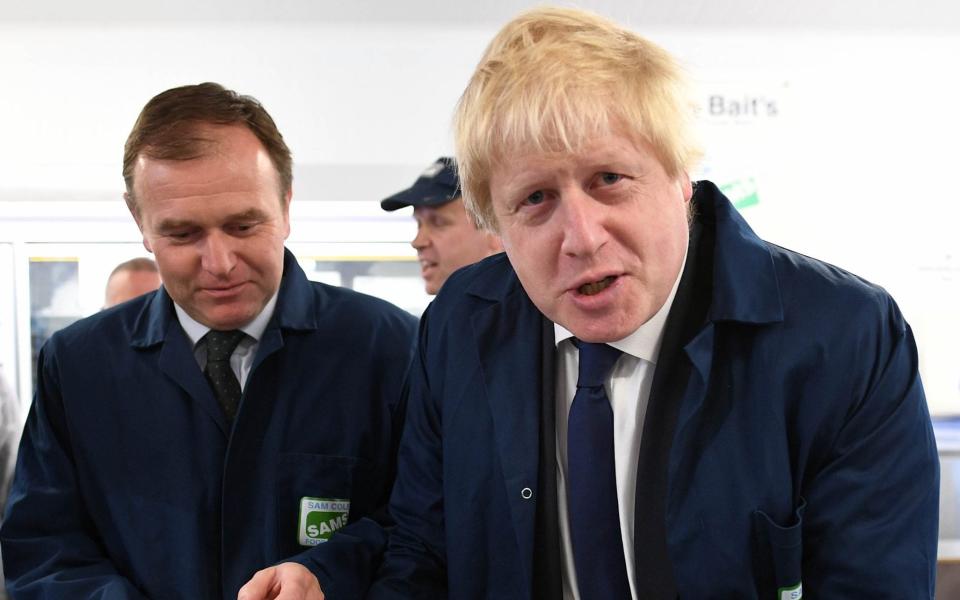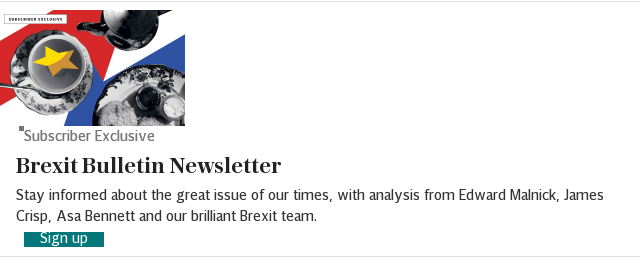UK and EU could agree 'multi-annual' Brexit deals for some fishing rights

Britain could forgo annual negotiations with the EU over fishing opportunities for some types of fish, the Environment Secretary said on Wednesday in the latest sign that a deal over British waters could be edging closer.
George Eustice's comments will be closely scrutinised by Brussels for hints at a future compromise on fishing rights, one of the major issues preventing a UK-EU free trade agreement before the end of year deadline.
The UK has demanded a Norway-style fishing deal with annual negotiations over fishing opportunities after the end of the Brexit transition period on December 31.
The EU is ready to drop its demand that its boats retain status quo access to UK waters as if Brexit never happened, but insists any deal must be for the long term rather than renegotiated every year.
Mr Eustice told a House of Lords Select Committee: "It's not uncommon for there to be a multi-annual agreement, but not necessarily on all stocks [...] it can happen on individual stocks."
He said the EU already had a multi-annual agreement on mackerel that covers Norway, the Faroes and the EU.
Michel Barnier, the EU's chief negotiator, has warned that Norway only has a handful of shared fish stocks to negotiate with the EU each year but the UK has more than 100 different shared fish species.
He has ruled out annual negotiations on fishing opportunities but suggested the UK and EU could discuss fishing stocks "every year in the light of the scientific advice, so that we can protect resources and biodiversity".

The UK wants the new agreement to be based on the zonal attachment method for calculating fishing opportunities. Zonal attachment is a scientific method that reflects where fish are better than the historic catch patterns, dating back to the 1970s, that form the basis of the EU's Common Fisheries Policy.
Mr Barnier has said the EU could accept an element of zonal attachment if combined with factors such as ancient fishing rights and the impact on coastal communities.
"I think they [the European Commission] are starting to understand that the starting point isn't the Common Fisheries Policy," Mr Eustice said. "The starting point is that we are an independent coastal state."
The two sides were still "some way" from being able to sketch out a landing zone for a final agreement, the Tory MP for Camborne and Redruth told peers.
Mr Barnier met David Frost, his UK counterpart, for a dinner of halibut in Downing Street on Tuesday night. Before the meeting, Mr Barnier said the EU was willing to be "creative" to break the deadlock.
On Wednesday, he said he had a "nice dinner" and "useful discussion" with Mr Frost. He said negotiators were "working hard for a fair agreement" as further talks on fishing were held in London.
Mr Barnier has said that the fishing agreement must be part of the free trade deal, but the UK wants it to be a separate treaty.
The EU negotiator has warned that, without a fisheries agreement, there will be no trade deal at all. If the UK and EU fail to finalise trade negotiations before the end of the year, both sides will be forced to trade on less lucrative WTO terms, which include quotas and tariffs.
Angela Merkel told the European Parliament on Wednesday that the EU should be prepared for a no trade deal exit after Boris Johnson told the German chancellor that Britain was "ready" to walk away without an agreement.
Mrs Merkel, whose country holds the rotating six-month EU presidency until the end of the year, said in Brussels: "I will continue to push for a good solution, but we should also prepare for a possible no-deal scenario."
"Progress in negotiations so far has been slim, to put it diplomatically. We've agreed with the United Kingdom to accelerate the pace of talks to reach an agreement by autumn, an agreement that could be ratified by the end of the year."
Mr Johnson has been adamant that he will not allow the discussions to drag on into the autumn, arguing that British businesses and citizens need certainty on the way forward before then.


 Yahoo News
Yahoo News 